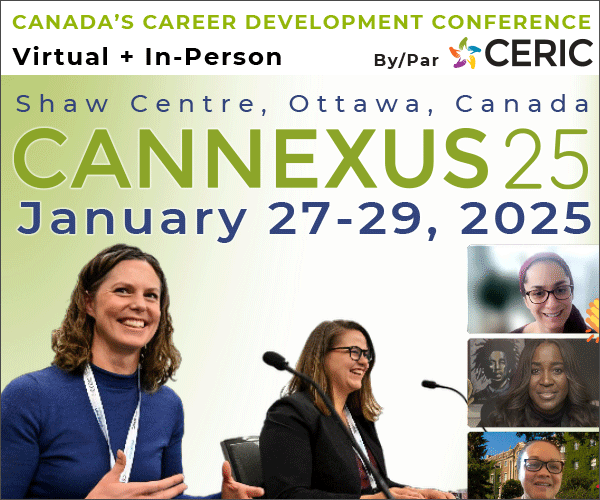Distinct Paths to Protean Career Attitude: Family and Peer Support as Mediated by Grit Among Emerging Filipino Adults
DOI:
https://doi.org/10.53379/cjcd.2024.403Keywords:
grit, Social support, protean career attitudes, emerging adults, career developmentAbstract
While career development is almost identical to personal development, the emerging adults have been more active in finding the best career for them in the recent years (Benardo & Salanga, 2019). Social cognitive career theory (SSCT) offered concepts such as social factors and personal factors that can explain the dynamics of career attitudes. Following the arguments of the theory, 415 respondents answered a scale on social support, a measure or grit, and a scale of protean career attitude to test the assumption of the hypothesis derived from SSCT. Although personal factor such as grit and social support correlated with protean career attitude, the results showed a different path of career attitudes depending on its source. While grit fully mediated family support and protean career attitudes, peer support directly predicted protean career attitudes without any mediation from grit. This suggest that there were different kinds of support emerging adults need when it come to their family and that of their peers. The outcome of this study can serve as a basis for career development program that both workers and employers can benefit from.
References
Angeline, J., & Rathnasabapathy, M. (2021). Influence of perceived social support on career decision-making self-efficacy among undergraduate students. Turkish Journal of Computer and Mathematics Education (TURCOMAT), 12(7), 1824-1829. https://www.researchgate.net/publication/351373714
Bernardo, A. B. I., & Salanga, M. G. C. (2019). Validating the protean and boundaryless career attitudes scales with Filipino young adults. Cogent Psychology, 6(1). https://doi.org/10.1080/23311908.2019.1671133
Briscoe, J. P., Hall, D. T., & Frautschy DeMuth, R. L. (2006). Protean and boundaryless careers: An empirical exploration. Journal of Vocational Behavior, 69(1), 30–47. https://doi.org/10.1016/j.jvb.2005.09.003
Brown, L., & Kuss, D.J. (2020). Fear of missing out, mental wellbeing, and social connectedness: A seven-day social media abstinence trial. International Journal of Environmental Research and Public Health, 17(12), 4566. https://doi.org/10.3390/ijerph17124566
Campos, R., & Distor, J. M. (2018). Perceived social support as mediator between psychological distress and job satisfaction among faculty members in a state university during COVID-19 pandemic. European Online Journal of Natural and Social Sciences, 11(1), 1805-3602. https://european-science.com/eojnss
Chan, C. (2017). Social support, career beliefs, and career self-efficacy in determination of Taiwanese college athletes’ career development. Journal of Hospitality, Leisure, Sport & Tourism Education, 22, Article e100232. https://doi.org/10.1016/j.jhlste.2019.100232
Cobo‐Rendón, R., López-Angulo, Y., Pérez-Villalobos, M. V., & Mújica, A. D. (2020). Perceived social support and its effects on changes in the affective and eudaimonic well-being of Chilean university students. Frontiers in Psychology, 11. https://doi.org/10.3389/fpsyg.2020.590513
Corcoran, M., & Clark, S.M. (1984). Professional socialization and contemporary career attitudes of three faculty generations. Research in Higher Education, 20, 131–153. https://doi.org/10.1007/BF00991464
Datu, J. (2021). Beyond passion and perseverance: Review and future research initiatives on the science of grit. Frontiers in Psychology, 11. https://doi.org/10.3389/fpsyg.2020.545526
Daud, N. (2016). Determinants of Job Satisfaction: How Satisfied are the New Generation Employees in Malaysia? Procedia - Social and Behavioral Sciences, 219, 208–213. https://doi.org/10.1016/j.sbspro.2016.05.007
Davis, A. C., Albert, G., & Arnocky, S. (2023). The links between fear of missing out, status-seeking, intrasexual competition, sociosexuality, and social support. Current Research in Behavioral Sciences, 4, 100096. https://doi.org/10.1016/j.crbeha.2023.100096
Dou, F., Li, Q., Li, X., Li, Q., & Wang, M. (2021). Impact of perceived social support on fear of missing out (FoMO): A moderated mediation model. Current Psychology, 42(1), 63–72. https://doi.org/10.1007/s12144-021-01404-4
Duckworth, A. L., Peterson, C., Matthews, M. D., & Kelly, D. R. (2007). Grit: Perseverance and passion for long-term goals. Journal of Personality and Social Psychology, 92(6), 1087–1101. http://dx.doi.org/10.1037/0022-3514.92.6.1087
Hill, P. L., Jackson, J. J., Roberts, B. W., Lapsley, D. K., & Bradenberger, J. W. (2011). Change you can believe in: Changes in goal setting during emerging and young adulthood predict later adult well-being. Social Psychology Personality Science, 2(2), 123-131. https://doi.org/10.1177%2F1948550610384510
Hirano, K. A., Khurana, A., Lindstrom, L., & DeGarmo, D. (2022). Examining the role of peer support on work experiences for young women with disabilities. Journal of Career Development, 49(3), 632-646. https://doi.org/10.1177/0894845321991647
Kim, H. O., & Lee, I. (2022). The mediating effects of social support on the influencing relationship between grit and academic burnout of the nursing students. Nursing Open, 9(5), 2314–2324. https://doi.org/10.1002/nop2.1241
Koekemoer, E., Olckers, C., & Schaap, P. (2023). The subjective career success of women: The role of personal resources. Frontiers in Psychology, 14. https://doi.org/10.3389/fpubh.2024.1327966
Koutroubas, V., & Galanakis, M. (2022). Bandura’s Social Learning Theory and Its Importance in the Organizational Psychology Context. Psychology Research, 12(6). https://doi.org/10.17265/2159-5542/2022.06.001
Latheef, Z. I., Robinson, R., & Smith, S. (2021). Realistic job preview as an alternative tool to improve student readiness for online learning. Online Learning, 25(2), 208–232. https://doi.org/10.24059/olj.v25i2.2216
Li, H., Yu, X., Mei, Y., Liu, X., Li, L., & Luo, N. (2021). The effect of grit on career adaptability of Chinese college students based on the self-regulatory processes. Frontiers in Psychology, 12. https://doi.org/10.3389/fpsyg.2021.795153
Lim, H. J., Hwang, M. H., & Ha, H. (2021). The relationship of grit, career adaptability, self-regulated learning, and academic adjustment: Focusing on the multiple mediational effects. Hong Kong Journal of Social Sciences, 57. http://hkjoss.com/index.php/journal/article/view/435/431
Matud, M. P., Diaz, A., Bethencourt, J. M., & Ibañez, I. (2020) Stress and psychological distress in emerging adulthood: A gender analysis. Journal of Clinical Medicine, 9(9), 2859. https://doi.org/10.3390/jcm9092859
McMahon, M., & Watson, M. (2022). Career development learning in childhood: a critical analysis. British Journal of Guidance & Counselling, 50(3), 345–350. https://doi.org/10.1080/03069885.2022.2062701
Niemiec, R. M. (2018). Character strengths intervention: A field guide for practitioners. In Google Books. Hogrefe Publishing GmbH. https://www.hogrefe.com/us/shop/character-strengths-interventions-76178.html
Salim, R. M. A., Istiasih, M. R., Rumalutur, N. A., & Situmorang, D. D. B. (2023). The role of career decision self-efficacy as a mediator of peer support on students’ career adaptability. Heliyon, 9(4), e14911. https://doi.org/10.1016/j.heliyon.2023.e14911
Salmela-Aro, A., Aunola, K., & Nurmi, J. (2007). Personal goals during emerging adulthood: A 10-year follow up. Journal of Adolescent Research, 22(6), 690-715. http://dx.doi.org/10.1177/0743558407303978
Sirén, C., Thorgren, S., & Järlström, M. (2018). Self-directed career management and mobility: The risk of lock-in effects from person–job fit. International Journal of Human Resource Management, 32(6), 1368–1389. https://doi.org/10.1080/09585192.2018.1523214
Stoffel, J., & Cain, J. (2018). Review of grit and resilience literature within health professions education. American Journal of Pharmaceutical Education, 82(2), 6150. https://doi.org/10.5688/ajpe6150
Sultana, R., & Malik, O. F. (2019). Is a protean career attitude beneficial for both employees and organizations? Investigating the mediating effects of knowing career competencies. Frontiers in Psychology, 10. https://doi.org/10.3389/fpsyg.2019.01284
Ting, L. C., & Datu, J. A. D. (2020). Triarchic model of grit dimensions as predictors of career outcomes. The Career Development Quarterly, 68(4), 348–360. https://doi.org/10.1002/cdq.12241
Turan, E., Çelik, E., & Turan, M. E. (2014). Perceived social support as predictors of adolescents’ career exploration. Australian Journal of Career Development, 23(3), 119–124. https://doi.org/10.1002/j.2161-0045.2002.tb00900.x
Thompson, M. N., & Dahling, J. J. (2012). Perceived social status and learning experiences in Social Cognitive Career Theory. Journal of Vocational Behavior, 80(2), 351–361. https://doi.org/10.1016/j.jvb.2011.10.001
Volmer, J., & Spurk, D. (2010). Protean and boundaryless career attitudes: Relationships with subjective and objective career success. Zeitschrift Für ArbeitsmarktForschung, 43(3), 207–218. https://doi.org/10.1007/s12651-010-0037-3
Wang, D., Liu, X., Deng, D. (2022). The perspectives of social cognitive career theory approach in current times. Frontiers in Psychology, 13. https://doi.org/10.3389/fpsyg.2022.1023994
Wood, D., Crapnell, T., Lau, L., Benett, A., Lotstein, D., Ferris, M., & Kuo, A. (2017). Emerging adulthood as a critical stage in the life course. National Library of Medicine, 1(1), 123-143. https://doi.org/10.1007/978-3-319-47143-3_7
Zimet, G. D., Dahlem, N. W., Zimet, S. G., & Farley, G. K. (1988). The Multidimensional Scale of Perceived Social Support. Journal of Personality Assessment, 52(1), 30–41. https://psycnet.apa.org/doi/10.1207/s15327752jpa5201_2

Published
How to Cite
Issue
Section
License
Copyright (c) 2024 Canadian Journal of Career Development

This work is licensed under a Creative Commons Attribution-NonCommercial-NoDerivatives 4.0 International License.














